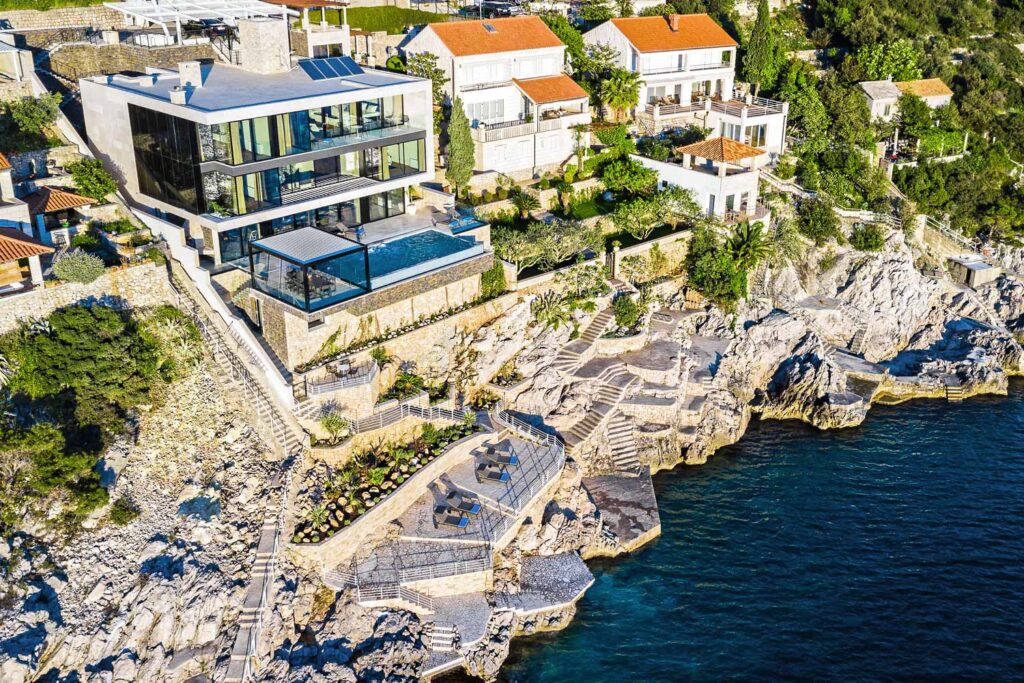Croatia, a gem nestled by the Adriatic Sea, has become a focal point for many international investors and home seekers. Its diverse landscape, from historic towns to picturesque islands, is drawing increased attention. As more individuals look into properties for sale in Croatia, it’s evident that this Mediterranean paradise offers more than just scenic beauty. This guide explores the nuances of the Croatian property market, highlighting key regions, trends, and tips, serving as a comprehensive resource for those aiming to invest or settle in this vibrant country.
Advantages of Investing in Croatian Real Estate
Coastal Regions and Popular Tourist Spots
Croatia’s coastal line stretches for over 1,700 kilometers, presenting a vast canvas of investment opportunities. This expanse is not just about the sun and sea; it’s about the rich tapestry of history, architecture, and natural beauty that interweaves its way from ancient towns to over 1,000 islands.
In the heart of this landscape is Dubrovnik, the “Pearl of the Adriatic”. With its rich history and UNESCO World Heritage status, it’s no wonder that real estate here is highly sought after. The city’s charm, amplified by global TV shows and films, has made it a favorite for those looking for property with both prestige and promise.
Moving north, Split offers an enticing blend of the old and the new. The city is a treasure trove of Roman architecture, most notably the Diocletian’s Palace. Its burgeoning nightlife, festivals, and strategic location near various islands make it a hotspot for those seeking properties that capture the essence of Croatian urban life.
But it’s not just the mainland that attracts. Hvar Island, with its endless sunny days, fragrant lavender fields, and vibrant nightlife, beckons to luxury investors. Properties here, especially those with sweeping sea views, are not just homes but statements.
While cities like Dubrovnik, Split, and Hvar often steal the limelight, it’s worth noting the potential in other regions. For instance, searches for istarska property for sale have seen an uptick, showcasing the growing interest in the Istria region.
Stable Economy and Low Crime Rate
Croatia’s journey since its EU accession in 2013 has been transformative. The integration brought about:
- Economic Growth: EU investments and funds have channeled into various sectors in Croatia, bolstering its GDP and increasing foreign investor confidence. Real estate is one such sector benefiting from this growth.
- Safety and Security: Croatia enjoys one of the lowest crime rates among Mediterranean countries. Its cities are generally safe, with petty crimes being the most reported, ensuring peace of mind for property owners and tourists alike.
- Regulatory Benefits: EU membership mandates that Croatia adheres to strict regulations, ensuring that property rights are respected and foreign investors are treated equitably. This has streamlined the real estate buying process, reducing bureaucratic hurdles.
Growing Infrastructure
Infrastructure development is often a precursor to real estate growth, and Croatia is no exception:
- Roads and Highways: The past decade saw massive investments in the road network. The A1 highway, running from Zagreb to Dubrovnik, has significantly reduced travel times, benefiting towns and cities en route.
- Air Connectivity: Airports like those in Dubrovnik, Split, and Zadar have undergone expansions. Increased flights, especially low-cost carriers connecting major European cities, have boosted tourist arrivals.
- Marine Infrastructure: Investments in ports, especially marinas for yachts and cruise ships, enhance Croatia’s appeal to the luxury traveler and property investor. The growing popularity of sailing and yachting holidays on the Adriatic has seen a rise in seafront properties and related infrastructural developments.

Market Trends in Croatian Real Estate
Croatia’s real estate market has seen a transformative shift over the last few years, driven by both local and global factors. Here are some prominent trends:
Rising Demand in Urban Areas
Cities like Zagreb, the capital, and Rijeka, a port city, have witnessed a surge in demand for residential properties. Young professionals and students gravitate towards these urban hubs for employment and educational opportunities, leading to a robust rental market. Modern apartments and renovated old buildings in city centers are especially sought after.
Villas and Resort Properties Take Center Stage
Croatia’s picturesque coastlines, dotted with islands, have become a hotspot for luxury properties. International investors, especially from Western Europe, are increasingly eyeing villas and resort homes in areas like Istria and Dalmatia. These properties, often boasting sea views and luxurious amenities, offer both vacation and rental income potential.
Eco-friendly Construction and Sustainable Development
Croatia, aligning with global trends, is moving towards sustainable real estate development. There’s a growing interest in eco-friendly constructions, using sustainable materials and energy-efficient systems. Properties with solar panels, rainwater harvesting, and energy-efficient appliances are gaining traction, both for their eco-footprint and long-term savings.
In summary, the Croatian real estate market, backed by its scenic beauty and growing infrastructure, is evolving rapidly. The blend of urban demand and luxury coastal properties, coupled with a nod towards sustainability, makes it a dynamic and promising investment landscape.
Tips for Potential Investors in Croatian Real Estate
Navigating the Croatian property market, especially for foreign investors, can be both exciting and challenging. To ensure a smooth and successful investment journey, consider the following advice:
Choosing a Reliable Real Estate Agent and Lawyer
Start by partnering with a reputable local real estate agent who understands the nuances of the Croatian market. Their insights into local pricing, emerging neighborhoods, and property history can be invaluable. Additionally, retain a lawyer experienced in Croatian property law to guide through the legal processes and ensure all transactions are above board.
Local Research and Knowledge is Key
While global trends offer a macro perspective, real estate success often lies in understanding local dynamics. Spend time in the region you’re interested in, get to know the neighborhood, and understand factors like local amenities, future infrastructure projects, and community vibes. This on-ground experience can influence your investment decision more than any report or analysis.
Legal Aspects for Foreign Buyers
Croatia has made significant strides in simplifying property acquisition processes for foreigners, especially EU citizens. However, certain nuances exist:
- Reciprocity Principle: Non-EU investors should ensure their home country has a reciprocity agreement with Croatia, allowing them to purchase property.
- Title Checks: Property ownership history can be complex. Ensure a thorough title check to avoid future disputes.
- Tax Implications: Familiarize yourself with local tax obligations, including property taxes and potential rental income taxes.
Consider Long-term Growth and Potential
While coastal properties with immediate rental returns might seem attractive, it’s worth considering areas poised for future growth. Emerging neighborhoods or towns, new infrastructure developments, or regions earmarked for tourism projects might offer more substantial long-term returns.
In conclusion, investing in Croatian real estate is an endeavor that requires due diligence, local expertise, and a forward-thinking approach. Equipped with the right knowledge and resources, investors can tap into a market ripe with potential.
Conclusion
The Croatian real estate landscape presents an enticing blend of natural allure and economic promise. With its extensive coastline housing gems like Dubrovnik, Split, and Hvar, the country’s rich history and beauty are undeniable assets for potential investors. Croatia’s economic growth post its EU accession, coupled with infrastructural advancements and a relatively low crime rate, makes it a secure and profitable venture for real estate investments. Trends indicate a favorable shift towards urban living and luxury coastal properties, with a commendable emphasis on sustainability. However, diving into this market requires meticulous planning. Engaging with experienced local professionals, understanding the local dynamics, and being aware of legal intricacies are crucial steps. When approached with informed caution and enthusiasm, Croatian real estate holds the promise of robust returns, blending the joys of Mediterranean life with sound investment prospects.






